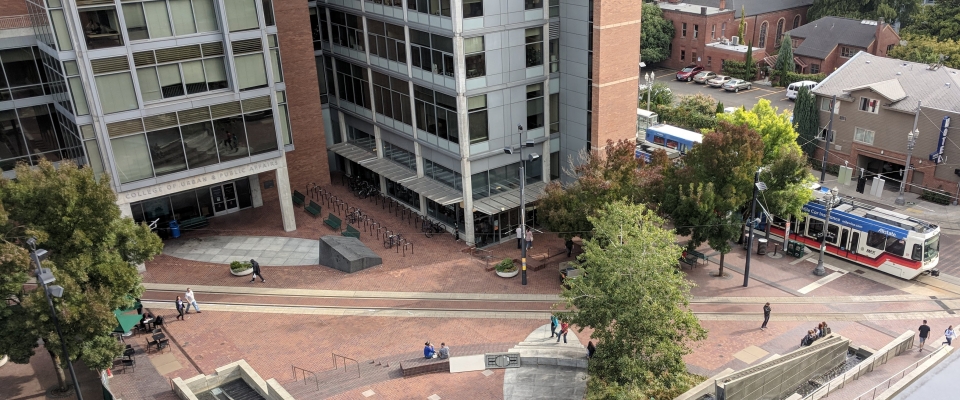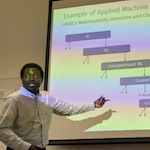Fall Transportation Courses Online at Portland State

It’s nearly time to jump back into the academic year, and at Portland State University we have quite a few Fall 2020 transportation graduate courses that will all be offered online. If you are not a current PSU graduate student, you can still take these courses through the non-degree application process or as a post-baccalaureate student. Taking a course is one way to see if one of our PSU graduate degree programs is right for you!
Civil and Environmental Engineering
CE 4/514 Transportation Seminar; Chris Monsere
This weekly seminar features a different speaker each week covering various topics in transportation research and practice. The topics cover all modes of transportation, with a focus on current practice. This course may be taken for credit up to three times.PREREQUISITE(S): None
CE 4/559 Transportation Operations; Jason Anderson
Operation, modeling, and control of unscheduled and scheduled transportation modes; elementary traffic flow concepts; flow, density and speed; scheduling; route and bottleneck capacities; networks; data interpretation; analysis techniques; diagrams; simulation queuing; optimization.PREREQUISITE(S): CE 351 or Graduate Standing
CE 5/610 Reliability and Risk in CEE; Avinash Unnikrishnan
Fundamentals of Probability Theory, Distribution Models, Functions of Random Variables, Elements of Reliability - General Formulation, Approximate Method, MVFOSM, FOSM, FORM, SORM, Monte Carlo Simulation.PREREQUISITE(S): Any undergraduate level probability and statistics course and Graduate Standing
Urban Studies and Planning
USP 411/511 Pedestrian-Bike Planning Lab; Derek Abe and Kirk Paulsen
A practical approach to bicycle and pedestrian planning and design through a project-based course that focuses on all aspects of the planning process. Students research and develop solutions to a practical challenge in the Portland region and present recommendations in report and presentation form.PREREQUISITE(S): USP 465/565 or equivalent
USP 456/556 Urban Transportation: Problems and Policies; Aaron Golub
An introduction to urban transportation policy from a historical and political perspective. Historical developments in transportation policy are traced from the early streetcar days up through the present. Federal, state, and local transportation policies are examined for their impact on urban spatial and economic development. An overview of current issues in transportation policy and planning includes transportation demand management strategies, transit- oriented design, road pricing, and alternative transportation modes. The intersection of environmental and transportation policy is also examined, as is the decision-making structure at the local, regional, and state level.PREREQUISITE(S): None
USP 657 Advanced Data Analysis: Discrete Choice Modeling; Liming Wang
Presents the theory and practice underlying the formulation and estimation of models of individual discrete choice behavior with applications to travel, travel related and other choices. Provides students with an understanding of the theory, methods, application and interpretation of multinomial logit (MNL), nested logit and other members of the Generalized Extreme Value (GEV) family of models, as well as an introduction to mixed logit models.PREREQUISITE(S): USP 634 or equivalent intermediate statistics/econometrics course
Alternative Education Opportunities for Lifelong Learning
Friday Transportation Seminar, Instructors Vary
Ongoing, no application required
PBOT / PSU Traffic and Transportation Class for Citizen Education; Thuy Tu
Applications due Sept 1, 2020
Application does NOT guarantee admittance, and students are admitted by a mix of random lottery combined with intentional inclusion of diverse representation across geography and the BIPOC community. There are 30 seats, and a high volume of applications are submitted.
The Transportation Research and Education Center (TREC) at Portland State University is home to the National Institute for Transportation and Communities (NITC), the Initiative for Bicycle and Pedestrian Innovation (IBPI), and other transportation programs. TREC produces research and tools for transportation decision makers, develops K-12 curriculum to expand the diversity and capacity of the workforce, and engages students and professionals through education.








